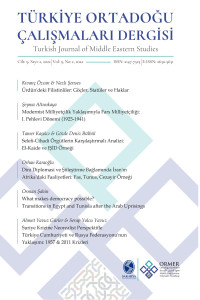Research Article
Book Review
Aim & Scope
Turkish Journal of Middle Eastern Studies (TJMES) is a refereed academic journal published for the Middle East Institute of Sakarya University which is a well-known research institution in Turkey and the Middle East. The journal was founded in 2014 to address the need for scholarly research on Middle Eastern studies. TJMES aims to analyze contemporary and historical issues of Middle East and North Africa.
Turkish Journal of Middle Eastern Studies provides a forum for interdisciplinary scholarship based on solid empirical research and innovative critical readings of developments in the Middle East and North Africa region. Geographically, the journal focuses on the Middle East region, broadly defined as stretching across North Africa from the Atlantic coast of Morocco to Egypt and south to Sudan, to the Anatolian Peninsula (Turkey), West Asia (Iran and Afghanistan) and the Arabian Peninsula.
TJMES welcomes academic contributions which analyse political, economic and social dynamics and developments of the Middle East region. The articles in the journal are mostly written in English and the journal prioritises contributions to the existing Middle Eastern studies literature. The journal prefers research written from multi-disciplinary perspectives and from a number of fields including but not limited to international relations, politics, sociology, history, geography, theology, philosophy, security and economics.The journal also has a book review section that covers reviews of the books on all issues of the Middle East. This helps readers of TJMES to understand current scholarly research of the field.
Author Guidelines
Manuscripts submitted for consideration by the Journal must follow the style given below;
· The manuscripts should not be submitted simultaneously to any other publication, nor may they have been previously published elsewhere, in Turkish or English.
· Articles submitted to the journal of Turkish Journal of Middle Eastern Studies, should be original contributions and should not be published previously or should not be under consideration for any other publication at the same time.
· If another version of the paper is under consideration by any other publication, or has been, or will be published elsewhere, authors should inform the journal editors at the time of submission.
· Articles should be between 6,000-10,000 words including footnotes and bibliography. Book reviews should be between 750-1500 words. Case analyses should be between 3000-5000 words including footnotes.
· Articles should include Turkish and English max. 200 words abstract and maximum 5 keywords in both languages.
· All quotation are preferred as “Chicago Style” in our journal.
· Authors bear responsibility for their contributions. Statements of fact or opinion appearing in Turkish Journal of Middle Eastern Studies are solely those of the authors and do not imply endorsement by the journal.
Style:
- Papers should be written in a considerable level of academic Turkish or English.
- Manuscripts should be typed using Microsoft Word document file, in Times New Roman and 1 space. 12 font should be used within text while 10 font should be preferred for footnotes.
- References should be given both in the footnotes and in the bibliography. Reference style must conform to the Chicago Manual of Style. Please see the style for examples.
- The section titles and subtitles in the manuscripts should be numbered. (i.e. 1. Introduction, 2. Title xxx, 2.1. Subtitle xxx, etc.)
- If there are any tables, graphs and figures, they have to be included in the submitted main text file. Graphs and figures should be in one of the usual formats, at best in GIF or BMP format.
- The tables, graphs and figures should be numbered consecutively for each and should match the same numbering used in the text.
Submission:
Manuscripts must be submitted via: https://dergipark.org.tr/journal/868/submission/start
Note: If you encounter any problems with writing citation or bibliography, the data on the web page of The Chicago Manuel of Style,” http://www.chicagomanualofstyle.org/tools_ citationguide/citation-guide-1.html” should be taken as basis.
Ethical Principles and Publication Policy
The publication policy of the Turkish Journal of Middle Eastern Studies (TJMES) is based on the improvement and dissemination of information in an impartial and respectful manner. The processes applied in line with this policy directly affect the quality of the studies submitted by authors and affiliated institutions. Peer-reviewed studies support and materialize the scientific method. Therefore, all the parties taking part in the process (authors, readers, researchers, publishers, reviewers, editors) should comply with the ethical principles.
The Turkish Journal of Middle Eastern Studies expects all its parties to take on the following ethical responsibilities as part of the publication ethics.
The ethical duties and responsibilities listed below are based on the guidelines and policies published as open access by the Committee on Publication Ethics (COPE).
The publication of an article in a peer-reviewed journal is essential for the development of a coherent and respected knowledge network. Peer-reviewed articles support and develop scientific methods. Therefore, it is important for all relevant parties involved in the publishing process, including authors, journal editors, reviewers, and publishing agencies, to agree on the expected ethical behaviors and standards.
1. Ethical Principles
1. Authorship of the Paper:
Authorship should be limited to those who have made a significant contribution to the conception, design, execution, or interpretation of the reported study. All those who have made significant contributions should be listed as co-authors. Where there are others who have participated in certain substantive aspects of the research project, they should be acknowledged or listed as contributors. The corresponding author should ensure that all appropriate co-authors and no inappropriate co-authors are included in the paper and that all co-authors have seen and approved the final version of the paper and have agreed to its submission for publication.
2. Conflicts of Interest:
Authors: All authors should disclose in their manuscript any financial or other substantive conflict of interest that might be construed to influence the results or interpretation of their manuscript. All sources of financial support for the project should be disclosed.
Reviewers: Referees should inform the journal editor about the evaluation process if they suspect any conflict of interest in the article they are evaluating, and refuse article evaluation if necessary. In order to prevent conflict of interest, people in the institutions where the article authors are working cannot referee the article.
Editors: Editors should not have personal or financial conflicts of interest with articles.
3. Data Access and Retention:
Authors are asked to provide the raw data in connection with a paper for editorial review, and should be prepared to provide public access to such data, if practicable, and should in any event be prepared to retain such data for a reasonable time after publication.
4. Data Fabrication and Falsification:
Fabrication and/or falsified experimental results, including the manipulation of images.
5. Duplicate / Multiple Submission(s):
Manuscripts that are either found to have been submitted elsewhere or published elsewhere. If authors have used their own work, either previously submitted or published, as the basis for a submitted manuscript, they are required to cite the previous work. They also need to indicate how novel contributions are offered in their submitted manuscript, over and above those of the previous work.
6. Intellectual Property
• Authors certify that their submitted manuscript (and any supporting items) are their own intellectual property and the copyright has not been transferred to others.
• Authors certify that the manuscript contains no plagiarism, no fabrication, no falsification, no manipulated citations and that the manuscript conforms to JSS authorship policies.
• All manuscripts, revisions, drafts, and galleys remain the intellectual property of the author(s). Except as stated in the agreed license, the author(s) retain the copyright to their work.
• All review comments and reports remain the intellectual property of the reviewer or editor. Except as stated in the agreed license, the author(s) retain the copyright to their work.
• Authors, reviewers, and editors agree to keep all communications, comments, or reports from reviewers or editors confidential.
• Reviewers and editors agree to keep all manuscripts, revisions, and drafts confidential, with the exception of the final published galley(s).
7. Correction, Retraction, Expression of Concern
• Editors may make corrections if they detect minor errors in the published article that do not affect the findings, interpretations, or results.
• Editors may retract the article in case of major errors/violations that invalidate the findings and results.
• Editors may issue a statement of concern if there is a possibility of abusive research or publication by the authors, if there is evidence that the findings are unreliable and the authors' institutions have not investigated the incident, or if the potential investigation seems unfair or inconclusive. COPE and ICJME guidelines are taken into account with regard to the correction, retraction, and expression of concern.
8. Publication of Studies Based on Surveys and Interviews
Aiming to establish ethical assurance in scientific periodicals, the TJMES adopts the principles of the "Code of Conduct and Best Practice Guidelines for Journal Editors" and the "Code of Conduct for Journal Publishers" published by the Committee on Publication Ethics (COPE). In this scope, the following aspects should be adhered in the studies submitted to the journal:
• Ethics committee approval should be obtained for research conducted in all the disciplines that require ethics committee approval, and this approval should be stated and documented in the article.
• In studies that require ethics committee approval, information about the approval (committee name, date and issue number) may be included in the method section of the study. However, in case reports, information about the informed consent and the signed consent form should be included in the Article Information Form at the end of the article.
The studies that require ethics committee approval are as follows:
• All kinds of research conducted with qualitative or quantitative approaches that require data collection from participants through surveys, interviews, focus group works, observations, experiments and other interview techniques.
• Use of humans and animals (including material/data) for experimental or other scientific purposes,
• Clinical studies conducted on humans,
• Studies conducted on animals,
• Retrospective studies in accordance with the law on the protection of personal data,
Also;
• A statement confirming that an "informed consent form" has been received in case reports,
• Obtaining permission from the owners for the use of scales, surveys or photographs belonging to others,
• A statement confirming that copyright regulations are met for the intellectual and artistic works used.
9. Policy of Publishing Additional or Special Issues
A special issue can be published in our journal once a year upon the request of the Editorial Board. The publication processes of the articles sent to be included in the special issue are the same as the standard processes.
1. Additional or Special issue: An issue published in addition to the regular issues of a periodically published journal. It may consist of conference papers or a series of articles focusing on a specific topic.
2. Page numbering in the additional or special issue is different from the regular issues.
3. The print run of the additional or special issue cannot be more than one third of the regular issue. The special issues containing conference paper abstracts are not included in this scope.
4. Ratios of case reports, compilations and research articles (excluding conference paper abstracts) published in the additional or special issue will be included in the ratios of articles published in other issues.
5. The issues published as a tribute are not accepted as an additional or special issue. Their page numbering and organization are the same as the regular issues.
10. Plagiarism Action Plan and Measures of the Journal
The journal respects intellectual property rights and aims to protect and promote the original work of its authors. Having plagiarized content in articles do violate the research and originality standards. Therefore, all the authors submitting articles to the journal are expected to comply with the ethical standards and avoid all forms of plagiarism. If a submitted or published article is suspected of containing plagiarism, the Publication Board of the journal first examines the work. Then the work is reviewed by the Editorial Board. Afterwards, the journal contacts the author(s) and asks them to submit their justifications within 15 days. If the journal does not receive any response from the author(s) within the specified time, it would contact the affiliated university and request the investigation of the claim.
The journal will take the following serious measures for published articles that are found to contain plagiarism:
• The journal will immediately contact the university to which the author(s) are affiliated, in order to take final action against the related author.
• The journal will remove the PDF copy of the published article from the website, will remove the published article from the issue file, and will disable all links to the published article. The phrase "Plagiarized Article" will be added to the title of the published article.
• The journal will disable the author's account and reject all future submissions by the author for the following 2 years.
Note: If readers notice an error or inaccuracy in a published article, they can file a complaint by sending an e-mail to ortadogudergi@sakarya.edu.tr.
The author should submit a similarity report for new studies submitted to the journal. Pre-reviewed articles may again be subjected to plagiarism checking in any software.
If plagiarism/self-plagiarism is detected, the authors are informed. An article with a high overall similarity rate (maximum 15%) or with more than 3% similarity rate from a single source may be rejected or sent back to the author to reduce the similarity rate.
Actions that violate scientific research and publication ethics are as follows:
(Turkish Council of Higher Education [YÖK] Scientific Research and Publication Ethics Directive, Article 4)
https://www.yok.gov.tr/Sayfalar/Kurumsal/mevzuat/bilimsel-arastirma-ve-etik-yonetmeligi.aspx
Plagiarism: Showing others' original ideas, methods, data or works as their own work, partially or completely, without reference to scientific rules,
Forgery: Using data that does not actually exist or has been falsified in scientific research,
Distortion: Falsifying the research records or data obtained, displaying the equipment or materials not used in the research as if used, distorting or shaping the results of the research in the interests of the people and organizations that provide support,
Republishing: Presenting repetitive publications as separate publications in academic appointments and promotions,
Slicing: Dividing the results of a research into pieces in an improper way or in a way that disrupts the integrity of the research and publishing each one separately to increase total publication count for academic appointments and promotions,
Unfair Authorship: Including non-contributors in the author list or not including those who have contributed, changing the author's order in an unjustified and inappropriate manner, removing the names of contributors from the work in subsequent editions, using influence to include names among the authors despite not being contributors,
Other ethical violations include:
a) Not specifying the supporting individuals, institutions or organizations and their contributions in the publications made as a result of research conducted with support.
b) Using theses or studies that have not yet been submitted or have not been accepted as a source without the permission of the owner,
c) Not complying with ethical rules in research on humans and animals, not respecting patients' rights in publications,
ç) Violating the provisions of the relevant legislation in biomedical research and other clinical research related to humans,
d) Sharing the information in a work that has been assigned for review with others before it is published without the explicit consent of the author,
e) Misusing resources, spaces, facilities and equipment provided or allocated for scientific research,
f) Deliberately making a false and ungrounded allegation about ethical violation,
g) Publishing the data obtained from surveys conducted as part of a scientific study without the explicit consent of the participants, or without the permission of the relevant institution if the study is conducted in an institution,
h) Harming animal health and ecological balance in research and experiments,
ı) Failing to obtain written permissions from authorities that are required for starting research activities or experiments,
i) Conducting research activities or experiments in violation of the related legislation or the provisions on research and experiments in the international conventions to which Turkey is a party,
j) Disregarding the obligation to inform and warn the relevant authorities about possible harmful practices related to the scientific research.
k) Not using the data and information obtained from other individuals or institutions in scientific studies to the extent and as permitted, not respecting the confidentiality of this information and not ensuring its protection,
l) Making false or misleading statements regarding scientific research and publications in academic appointments and promotions.
Ethical Guidelines for Authors
• Studies must be original and based on research.
• It must be ensured that all the persons mentioned as authors/co-authors have contributed to the article. It is against scientific ethics to show persons who have not made any academic contribution as additional authors or to rank the authors by non-scientific criteria such as title, age and gender, regardless of the order of contribution.
• In the articles with multiple authors, it should be clearly stated to what extent the authors have contributed to which stage of the article.
• The article should not be sent to different journals at the same time and should not have been sent to another journal before. If it is found to have been sent to another journal, the publication process will be cancelled.
• It is assumed that the authors who submit articles to the journal have read and accepted the publication and writing principles of the journal, and the authors are deemed to have committed to these principles.
• The citations and bibliography should be complete.
• Plagiarism and fake data should be avoided.
• The similarity rate obtained as a result of the similarity checks should not exceed 15% in order to initiate the peer review process.
• An article may be included in a maximum of 2 PRE-REVIEW processes. The article will be rejected if the feedback conveyed to the author is not revised.
• The corresponding author must inform the journal editor in case of any conflict of interest.
In this scope, WAME can be referred:
https://www.wame.org/conflict-of-interest-in-peer-reviewed-medical-journals
Ethical Guidelines for Peer Reviewers
• Peer reviewers should be aware that they play a critical role in the academic quality of the article to be published in the journal, and they should engage in the peer review process with the responsibility of improving academic quality.
• Peer reviewers should only accept to review articles for which they have the expertise to make an appropriate assessment. They should also respect the confidentiality of the blind peer review process and keep the details of the article confidential at all costs.
• After the review process, any information about the reviewed article should not be shared with others under any circumstances.
• Peer reviewers should only evaluate the accuracy of the content of the articles and their compliance with academic criteria. Any difference of opinions between the article's argument and the peer reviewer should not affect the review process.
• Peer review reports should be objective and measurable. Libelous, derogatory or accusatory expressions should definitely be avoided.
• Peer reviewers should avoid superficial or inaccurate statements in their peer review reports. In reviews with negative results, a complete justification should be presented on the aspects that led to the negative result.
• Peer reviewers should review the articles within the time period allotted to them. If they are not going to review the article, they should notify the journal within a reasonable time.
Ethical Guidelines for Editors
• Editors should accept articles that will contribute to the relevant areas specified in the journal policy.
• Editors should not have any conflict of interest with accepted or rejected articles.
• Editors have full responsibility and authority to accept or reject an article.
• It is editors' responsibility to keep the names of peer reviewers and authors mutually confidential.
• Only the articles that will contribute to the relevant field should be accepted.
• If an error is detected, editors should support the correction or retraction of the error.
• It is the duty of editors to complete the pre-review, peer review, editing and publishing processes of the articles submitted to the journal in a timely and appropriate manner.
• Editors should not assign people who do not contribute to the journal as editorial board members or associate editors.
2. Publication Policy
Any manuscript that is considered to be published in the TJMES must meet the following criteria:
• Originality
• Not containing ethical violations
• Having clear messages for the scientific community
• Expressing the extent of the article's contributions to researchers in the field and its relevance to social sciences
• Current fields and topics drawing the interest of researchers in the field of social sciences
• Having structural and logical integrity
• Research results that are based on scientific evidence
• Coherence of the scientific method
Review of the Articles
Articles can be submitted to the TJMES by registering in the "Article Management System" on. https://dergipark.org.tr/en/pub/tocd. Articles sent by e-mail will not be taken into consideration.
Pre-Review and Plagiarism Checking
The journal's compliance with the writing rules is examined and a similarity check is made to prevent plagiarism. A similarity software is used in the checking process. The overall similarity rate should be less than 15% and the similarity rate from a single source should be maximum 3%. If the similarity rate is more than 15%, the study is either rejected or sent back to the author to reduce the similarity rate. The pre-review is completed within a maximum of 30 days.
Editor/Field Editor Review
After the study passes the stages of pre-review and similarity checking, it is reviewed by the relevant editor/field editor in terms of subject, scope, language use and academic competence. This review is completed within a maximum of 30 days.
Peer Review Process (Double-Blind Peer Review)
Studies that pass the pre-review and editorial review undergo a confidential double-blind peer review process. Within the double-blind strategy, the identity of the peer reviewer is concealed from the author submitting publications to the journal. Similarly, the peer reviewers do not know who wrote the article they are reviewing. In other words, the peer review process is conducted by keeping both authors and peer reviewers anonymous to each other. The reports are also stored in the Article Management System.
Author's Revision
Authors take into account the feedback, criticisms and recommendations of the reviewer and the Editorial Board. In case of any disagreement, they have the right to appeal with their justifications. Authors edit the article as per the reports and upload the final version of the article to the system.
Field Editor Review
The field editor checks whether the author has made the requested corrections in the text. If there is a “Major Revision” requirement in the peer review reports, they send the article to the relevant peer reviewer. If there is "Acceptance" or "Minor Revision" requirement and the revisions are completed, they can submit the article for language checks (The checking process is completed within a maximum of 7 days.). If they detect that the corrections have not been made, they re-send the article to the author. They may reject the article if the author does not make the corrections again. Articles that are not accepted for publication are not deleted from the system. Their processes and files are stored in the system.
Turkish Language Checks
Studies that pass the peer-review process are examined by the Turkish Language Editor and if necessary, corrections are requested from the author. The checking process is completed within a maximum of 15 days.
English Language Checks
Studies that pass the Turkish language control are reviewed by the English Language Editor and if necessary, corrections are requested from the author. The checking process is completed within a maximum of 15 days.
Editorial Board Review
The articles that pass technical, academic and linguistic reviews are examined by the Editorial Board and the final publication status is determined. In case of any objection from the members, the Board decides by majority of votes.
Typesetting and Layout Process
The journal undertakes the typesetting and layout processes of the studies decided to be published by the Editorial Board.
Language
The TJMES publishes articles written in Turkish and English. Turkish language articles should also include English abstracts. Turkish abstracts are not required in English language articles. If the article is written in a language other than English, an extended English summary should be added after the bibliography. The extended summary should be in line with the rules of writing applied in the article and should not be more than 750 words.
Change of Authorship
The TJMES accepts article authors according to the statement on the Title Page of the article. Therefore, it is the responsibility of authors to submit the final version of the full author list. Requests for any change of authorship after the submission of the article (e.g removal/addition of authors, change of order, etc.) are subject to editorial approval. The Editorial Board will investigate such cases and act according to the COPE flowcharts.
Requests for a change of authorship should be conveyed to the Editor with an official letter stating the reasons for the change. The letter should be signed by all the authors and include their confirmation of the change of authorship. If the request is approved by the Editorial Board, the authors are required to submit a new Copyright Agreement Form according to the final author list.
Objections and Appeals
The Editorial Board of the journal deals with objections and appeals within the scope of COPE guidelines. Authors can contact the Editorial Office directly for their objections and appeals. When needed, an impartial representative will be appointed for issues that cannot be resolved by the Editorial Board. The Editor-in-Chief will make the final decision in the decision-making processes regarding objections and appeals.
2.1.13. Disclaimer
The opinions expressed in the articles published in the journal are those of the author(s). They do not purport to reflect the opinions or views of the TJMES and its Editor-In-Chief, Editors, Editorial Board or Publisher. The Editor-in-Chief, Editors, Editorial Board and Publisher assume no responsibility or liability for such cases. The sole responsibility for the published content lies with the authors.
Price Policy
• The TJMES does not request any fees for article submission, reviewing and editing processes, page-layout and publication (page or color fees).
• The TJMES does not pay any fees to authors, reviewers, editors and editorial board members.
• All papers on the TJMES are free to read and download.
• The TJMES signed on to the Budapest Open Access Initiative (BOAI), which promotes free access to research literature, and has adopted the Open Access Principles that clarified in this initiative.
• All papers on the TJMES are archived with LOCKSS (Lots Of Copies Keep Stuff Safe) system through TÜBİTAK ULAKBİM DergiPark.
• The TJMES does not accept announcements, advertisements, sponsorships, etc. due to its publication policy.
The average time during which the preliminary assessment of manuscripts is conducted: max. 4 months
The average time during which the reviews of manuscripts are conducted: 3 months
The average time in which the article is published: max. 1 year.
Early view: possible.
Peer Review Guide
To evaluate an article sent from the system, follow the steps below:
• Login with your ID and password.
• Enter the Journal Panel of the Turkish Journal of Middle Eastern Studies (TJMES) from My Journals section.
• Log in to the reviewer panel.
• Click the title of the article which be appointed for peer review by you from the new invitation section.
• Acceptance or denial of the peer review will ask to you in the page that will pop-up.
For the accept of peer review please click the “Accept the Review” that in the green section.
• You will see the full article in the “Documents” after accept review.
• After reviewing the article, please fill the review form in the “Reviews” section. Upload the review file if there is.
• Lastly click the button “Send the Review” that spotting right side of the page.
Peer Reviewing Processes
In the TJMES, the referees are selected from among the experts of the subjects covered in the articles. All selected referees are informed about the responsibilities of the referees and the ethical principles, article evaluation criteria and procedure of the TJMES.
• Reviewer, must take into account after accept peer reviewing on the system “Responsibilities of reviewer and ethical principles to be followed” and “Reviewing Processes”.
• Reviewers should only accept reviewing of articles for which they have the necessary expertise to perform an appropriate review, can respect the confidentiality of blind peer review, and keep the details of the article confidential at all times.
• Reviewers invited for article review are expected to submit their decision to accept or reject the review within 7 days. The reviewer who does not make a decision at the end of this period is deemed to have rejected the review and the editor appoints a new reviewer. The reviewer who accept the review are expected to express their opinions within 15 days from the date of invitation acceptance. An additional period of up to 7 days is given to the referee who does not complete the review process within this period, if the reviewer requests. If the referee does not request additional time, a new referee can be appointed.
• Each reviewer who accepts the invitation to review is asked to fill in a review form and declare the acceptance or rejection opinions about the article by providing concrete reasons.
• In this review form, the referees are expected to express their opinions on the following issues:
1. Title and Content Consistency
2. Language and Expression of the Article
3. Systematic Compliance with Scientific Criteria
4. Defining Scope and Conceptual Framework
5. Subject Integrity
6. Defining the Problem
7. Review of the Previous Studies (Literature Review)
8. Research Method
9. Presentation, Organization and Consistency of Information
10. Critical Perspective
11. Accessing New Scientific Studies
12. Mastery of the Terminology of the Field
13. Provision of Findings
14. Originality of Study
15. Consistency of the Presented Arguments and Rational Relation to Results
16. Contribution to the Field
The reviewers give an opinion on all of these issues by choosing one of the options Adequate, Not Sufficient, Partially Sufficient, Mostly Sufficient. The referees do not need to approve all of these issues in order for the article to be published. However, in the review form, the suggestions regarding the parts given as Not Sufficient and Partially Sufficient, and other suggestions to the author, should be stated in the "Note to the Author" section.
• After completing this form, the referees can take the following decisions:
o Revise Manuscript (Major Revision)
o Revise Manuscript (Minor Revision).
o Reject.
o Accept.
• If one of the peer review reports is positive and the other is negative, the article is sent to a third reviewer.
• A single peer review report is sufficient for the rejection of a manuscript, but at least two peer review reports are required for its acceptance.
• If one of the peer review reports "Accept" or "Minor Revision" and the other "Major Revision" and the editor's opinion favors the acceptance of the article, the manuscript is sent to the same reviewer after the author makes the corrections. The article is rejected or sent to a third peer reviewer depending on the opinion of the reviewer who has issued the report with "Major Revision" requirement.
• The reviewer requesting revision may request to re-evaluate the article after revision. An additional 15 days are given to the reviewer for this evaluation.
• Reviewers can contact the editor via the DergiPark messages section for further guidance or to report any suspected violations. Correspondence here is not seen by the authors.
• The data of the articles based on field research or data analysis can be requested from the editor by the referee for a healthy review of the analyses in the article. The editor of the journal communicates with the author in this regard and transmits the data to the reviewer.
• Reviewers should not have any conflicts of interest regarding the research, authors and/or research funders. When a conflict of interest is foreseen, the referee should contact the editorial board and indicate a possible conflict of interest. The Conflict of Interest Framework published by COPE will be taken into account in any conflicts of interest that may arise. (https://publicationethics.org/case/conflict-interest).
• Reviewers cannot make use of the data of the articles they have reviewed before they are published or share this data with others.
• The names of the reviewers who make evaluations in the journal are not disclosed/published.
Archive Policy
Publisher: Sakarya University
Journal: Turkish Journal of Middle Eastern Studies
ISSN: 2147-7523
E-ISSN:2630-5631
The archiving policy of the journal covers the following issues:
1. The journal allows article authors to archive their own articles on the author's personal website or corporate pages and/or to use the final published version of the article for archiving in an institutional repository after publication.
2. Authors are permitted to self-archive their articles in public and/or commercial subject-based archives.
3. There is no embargo period for authors, but the published source should be cited and a link should be given to the URL of the article in the journal or to the DOI of the article.
4. Authors can download the article as a PDF document. Authors can send copies of the article to their colleagues without any embargo.
5. Articles published in the journal are also archived on the journal website and DergiPark.
Version Published in the Journal
Publication Type: Open Access
OAI: https://dergipark.org.tr/api/public/oai/fujma/
LOCKSS: https://dergipark.org.tr/tr/pub/fujma/lockss-manifest
RSS: https://dergipark.org.tr/tr/pub/fujma/rss-feeds
Embargo Period: There is no embargo period.
Open Access License: CC BY-NC 4.0
Copyright Holder: The author(s) protect the copyright.
Archive Location: Journal Website, Institutional Archive, Institutional Site, Author's Personal Website, Public and/or Commercial Subject Based Archives.
Policy Conditions: The journal should be cited in accordance with the citation and citation standards. It should be linked to the publisher version with the DOI.
The Version Accepted at the End of the Referee Process
Embargo Period: None
Archive Location: Journal Website, Institutional Site, Author's Personal Website, Public and/or Commercial Subject Based Archives.
Copyright Owner: Authors protect the copyright.
The First Text Submitted to the Journal
Embargo Period: None
Archive Location: Journal Website, Institutional Site, Author's Personal Website, Public and/or Commercial Subject Based Archives.
Open Access Policy
Financiers and other associations usually want the research articles that are funded by themselves to be presented free of charge as online or “open access”. The best manner to provide openness to your article or to ensure its reusability is to publish it as Open Access.
Before the 2000s, Open Access meant content that was freely available without any price. Nowadays, this type of Open Access is mentioned as Free Open Access. Over time, the concept of Open Access has become more widely accepted. There was a need to be clear about the level of permission that users should be allowed to use articles. This meant that the rights of users had to be clearly stated.
"Open Access" is a term that covers both Gratis and Libre Open Access. While "Gratis" open access means free online access, "libre" open access means free online access as well as some usage rights.
The Turkish Journal of Middle Eastern Studies (TJMES), in addition, to publishing scientific research, offers this research free of charge by adopting the principle that providing information free of charge will increase its global sharing and the policy of providing open access. Moreover, it provides instant open access to its content.
The journal is open access, and the entire content of the journal is provided free of charge to the reader or to the organization to which the reader belongs. Without permission from the publisher or the author and except for commercial purposes, the readers can read, download, copy, search, and provide links to the full text of the journal articles. They can also rearrange them, provided that the original work is properly cited.
This policy is in line with the Budapest Open Access Initiative (BOAI) definition, and the TJMES has also signed the BOAI.
Ref. http://www.budapestopenaccessinitiative.org/list_signatures/
Privacy Statement
The private information that is held in the administration system of the TJMES will not be shared with any third party and will only be used in accordance with the scientific purposes of this journal and Sakarya University.
The corresponding author is responsible for ensuring that the article has been seen and approved by all the other authors.
Archive
Our journal’s archive policy involves these:
• Our journal, allows the journal authors to archive their articles on their personal website and/or to use the latest published version of the article for archiving in an institutional pool.
• The authors can archive their articles by themselves in archives that are open to the public and/or have a commercial base.
• There is no restriction period for the authors. However, the source where it was published must be indicated and there must be a link to the URL of the article in the journal or the DOI number of the article.
• The authors can download the article as a PDF document. The authors are allowed to send copies of the article to their colleagues without any restriction.
• Articles published in our journal are archived in DergiPark pages.
Copyright Notice
Authors who submit articles to our journal read and approve the following copyright agreement while uploading their work to our journal's online system. When they approve, they are deemed to have accepted the copyright warning text.
Copyright Notice Text
Author(s);
a) The submitted article is the original work of the author(s), and they do not plagiarize,
b) All authors have participated in this study individually, and they take all responsibility for this study.
c) All authors have seen and approved the final version of the submitted article,
d) The article has not been published elsewhere or submitted for publication,
e) They accept and undertake that the text, figures, and documents in the article do not violate the copyrights of other parties.
The authors are deemed to have accepted the following terms by submitting their work to the journal under the CC BY-NC license.
1) The copyright of the published article belongs to its author under CC BY-NC 4.0 license.
2) The authors authorize this Journal to publish the article and identify itself as the original publisher.
3) The authors grant the right to freely use the article to any third party as long as the original authors and citation details are identified.
4) Nothing in this license impairs or restricts an author's right to preserve the integrity and ownership of their work.
5) All commercial rights related to the article belong to the authors.
The authors own the copyright of their work published in FUJMA, and their work is licensed under Creative Commons Attribution-NonCommercial 4.0 International (CC BY-NC 4.0). The Creative Commons Attribution-NonCommercial 4.0 International (CC BY-NC 4.0) license allows the work to be shared, copied, and reproduced in any size and format except for commercial use. It also allows it to be rearranged, transformed, and adapted, including building upon the original work, with proper reference to it.
CC BY-NC 4.0: https://creativecommons.org/licenses/by-nc/4.0/deed.en
As long as you honor the license conditions, the license owner cannot cancel these rights.
You are free to do these:
1) Share: You can share and redistribute the work in any environment or format.
2) Adapt: Mix, cite, and build on the existing work
With the conditions below:
3) Attribution: You must cite properly, put a link to the license, and if a modification is made, you must inform. Still, you can do fulfill these conditions, but this does not mean the license owner approves you and your way of use.
4) Non-Commercial: You cannot use this material for commercial purposes.
There is no further limitation: No legal requirements or technological measures apply that would legally restrict the use of the permissions provided by the license.
Articles published in this journal are digitally archived in LOCKSS. LOCKSS system has the right to collect, protect and present the Archive Unit.
Price Policy
• Turkish Journal of Middle Eastern Studies (TJMES) does not request any fees for article submission, reviewing and editing processes, page-layout and publication (page or color fees).
• TJMES does not pay any fees to authors, reviewers, editors and editorial board members.
• All papers on TJMES are free to read and download.
• TJMES sign on to the Budapest Open Access Initiative (BOAI), which promotes free access to research literature, and has adopted the Open Access Principles that clarified in this initiative.
• All papers on TJMES are archived with LOCKSS (Lots Of Copies Keep Stuff Safe) system through TÜBİTAK ULAKBİM DergiPark.
• TJMES does not accept announcements, advertisements, sponsorships, etc. due to its publication policy.
Indexes
Citation Indexes
Other Indexes
Journal Boards
Editor-in-Chief

Field Editors









 Web
Web


Assistant of Editor-in-Chief

Managing Editor

Assistant Editors - Technical Editors

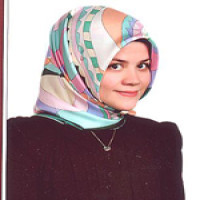






 Web
Web



PreFlight Editor

Turkish Language Editor

English Language Editor







 Web
Web
Ethics Editor

Secretariat

Statistics Editor
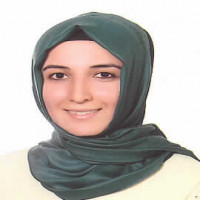
Editorial Board








 Web
Web






 Web
Web




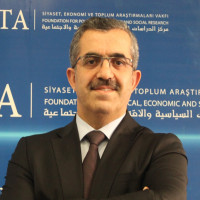

Layout Editor
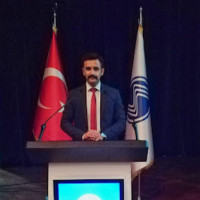

The published articles in TJMES are licensed under a
Creative Commons Attribution-NonCommercial 4.0 International License










